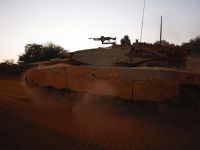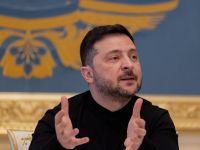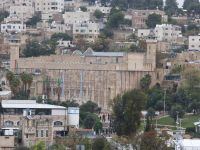US convicted spy Edmond Pope walked free Thursday from a Moscow jail after President Vladimir Putin pardoned the ailing businessman sentenced last week to 20 years' hard labor.
Pope, 54, who suffers from a rare form of bone cancer, headed straight for Moscow's Sheremetyevo airport and flew out of Russia aboard a US plane bound for the American military base at Ramstein in western Germany.
He was due to arrive at Ramstein, the top US base in Europe, between 12:30 pm and 13:00 pm (1130 GMT and 1200 GMT), a US embassy spokesman told AFP in Berlin.
The retired US naval intelligence officer would be de-briefed in Germany by US security experts and would also receive urgent medical treatment before flying back to the United States, diplomatic sources said.
US President Bill Clinton, who telephoned Putin last weekend urging him to pardon Pope, hailed the Russian leader's act of clemency Thursday in freeing the sick businessman.
"I welcome today's release of Edmond Pope after eight months of detention in Russia and appreciate President Putin's decision to pardon Mr Pope," Clinton said in a statement issued by White House officials in London, where he was on an official visit.
Accompanied by his wife Cheri, Pope said he felt "not bad" after his dramatic release, and had mixed feelings about his ordeal, happiness and sadness, but towards Russia itself no animosity, according to the Russian security services (FSB, formerly KGB), cited by Interfax.
He was released early Thursday after Putin signed a presidential decree pardoning him on humanitarian grounds, the Kremlin confirmed to AFP.
"Being guided by humanitarian principles, and taking into account the convict's health and his personal plea as well as the good relations between Russia and the United States, I decree that Edmond Pope be pardoned and released from serving his term in jail," Putin said in the official pardon document.
Pope has consistently protested his innocence of the espionage charges, for which he was convicted on December 6, ever since he was first arrested by the FSB in April.
However, his defence lawyer Pavel Astakhov hailed Putin's decision -- which is an act of clemency and does not overturn the court's verdict -- as a magnanimous gesture.
"We cannot over-emphasise this charitable act," Astakhov told Interfax shortly after Pope was released from Moscow's Lefortovo jail.
Astakhov said that he regretted not having obtained Pope's freedom through "a just decision" in the Russian courts.
Pope was sentenced last week to 20 years' hard labour in a Siberian prison camp for obtaining what Moscow said were classified blueprints of the Shkval (Squall) torpedo and delivering them to a foreign state.
During his six-week trial, Pope conceded that he had purchased documents relating to Russia's underwater Shkval torpedo for his hi-tech company, but argued that the information was already in the public domain.
It was the first spy trial of a US national in Russia in 40 years. The last involved the pilot of a U2 spy plane, Gary Powers, who was shot down over Russia in 1960 and convicted of espionage the following year.
Pope's release came less than a week after Putin's special pardon commission recommended the Russian leader exercise his constitutional right and show clemency to the sick prisoner.
In a case that has strained relations between Moscow and Washington, a Kremlin pardons commission had ruled that a court verdict condemning the 54-year-old cancer victim to a prison camp was unjust.
Pope's wife, as well as a number of US lawmakers, had denounced the jail term as a death sentence, saying Pope would die if he were sent to a Siberian hard labour camp.
In a letter from his prison cell, Pope asked Putin "to release him from jail so that he could return to Pennsylvania and to his family and also receive medical treatment."
© 2000 Al Bawaba (www.albawaba.com)







